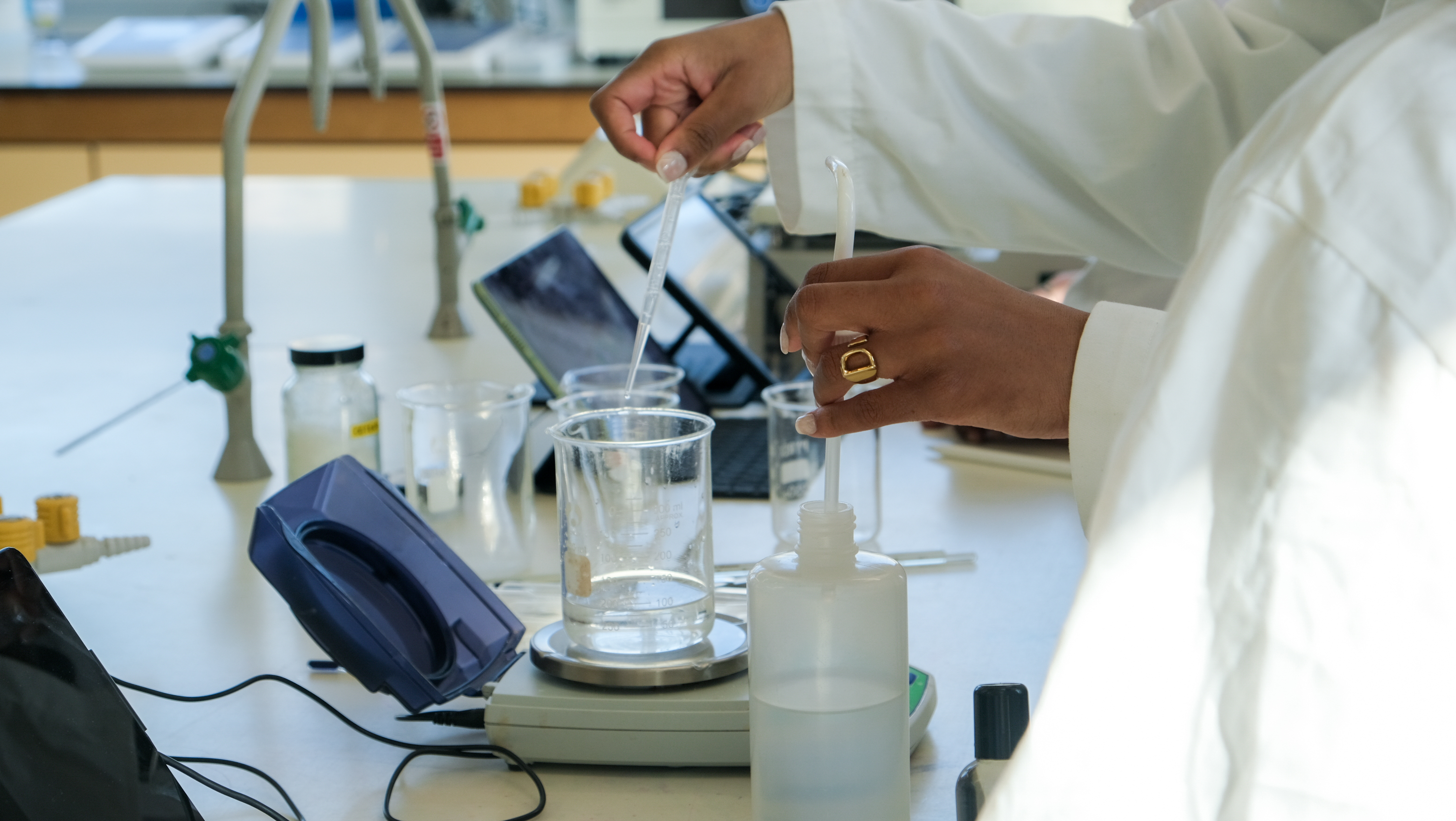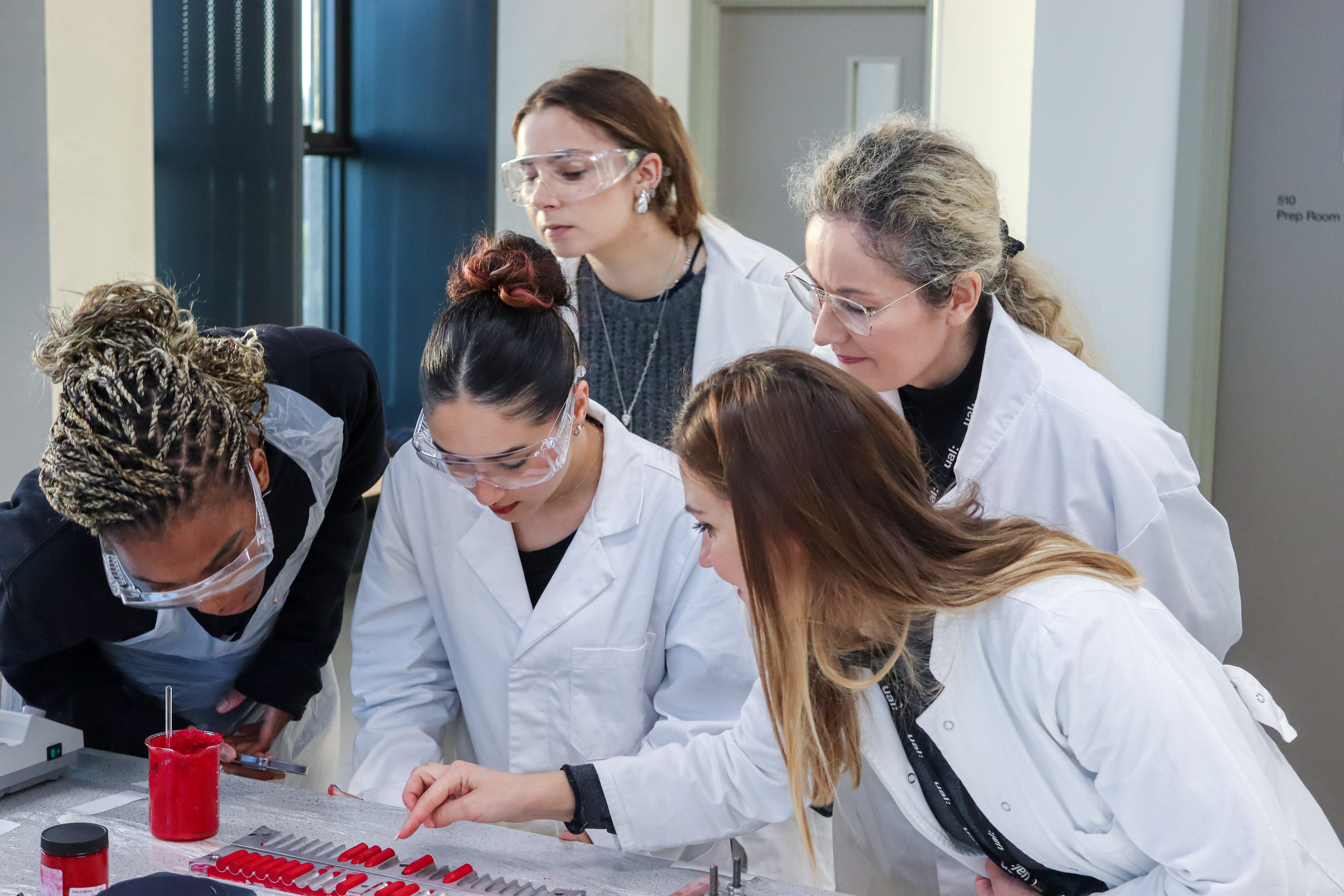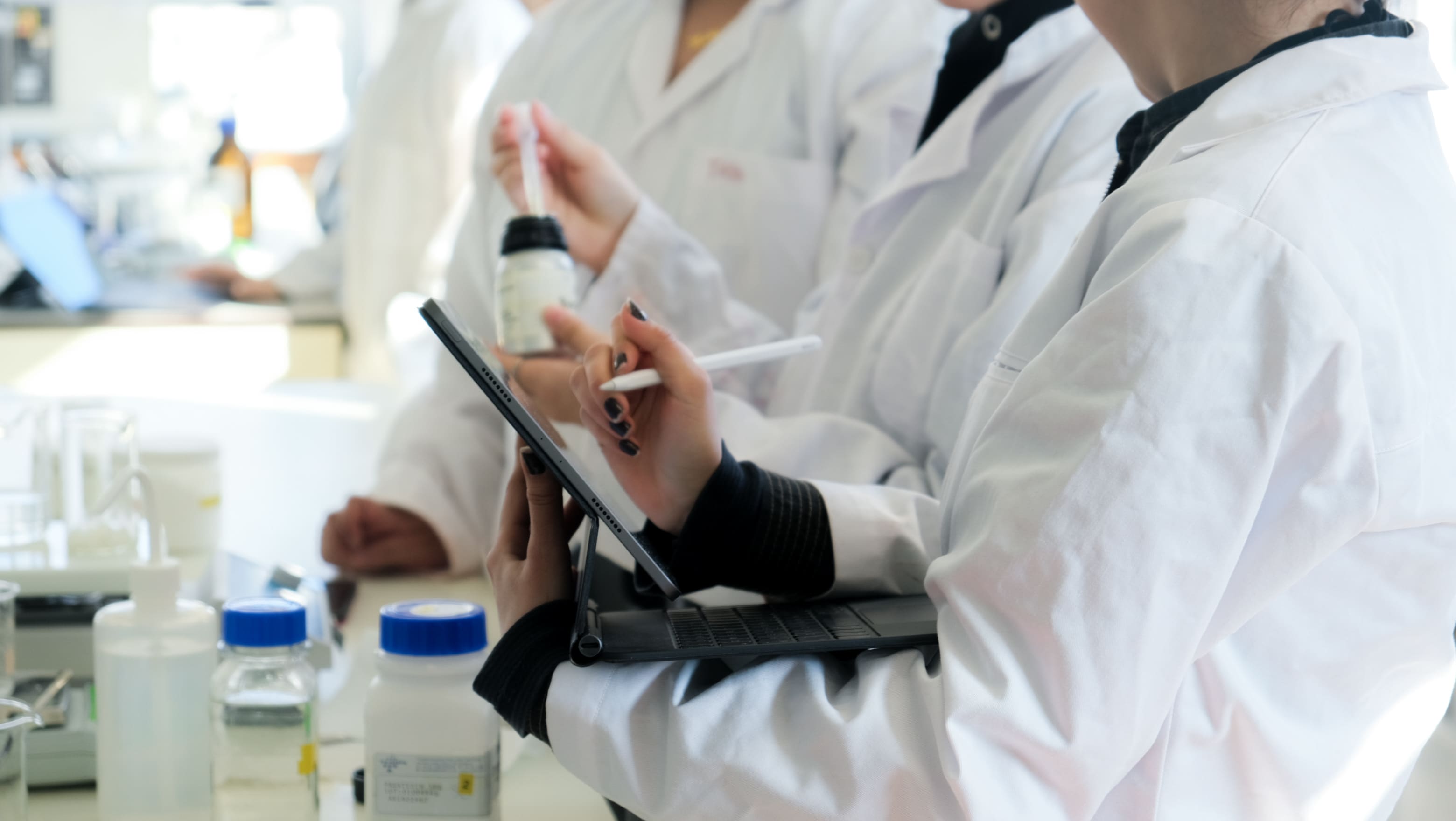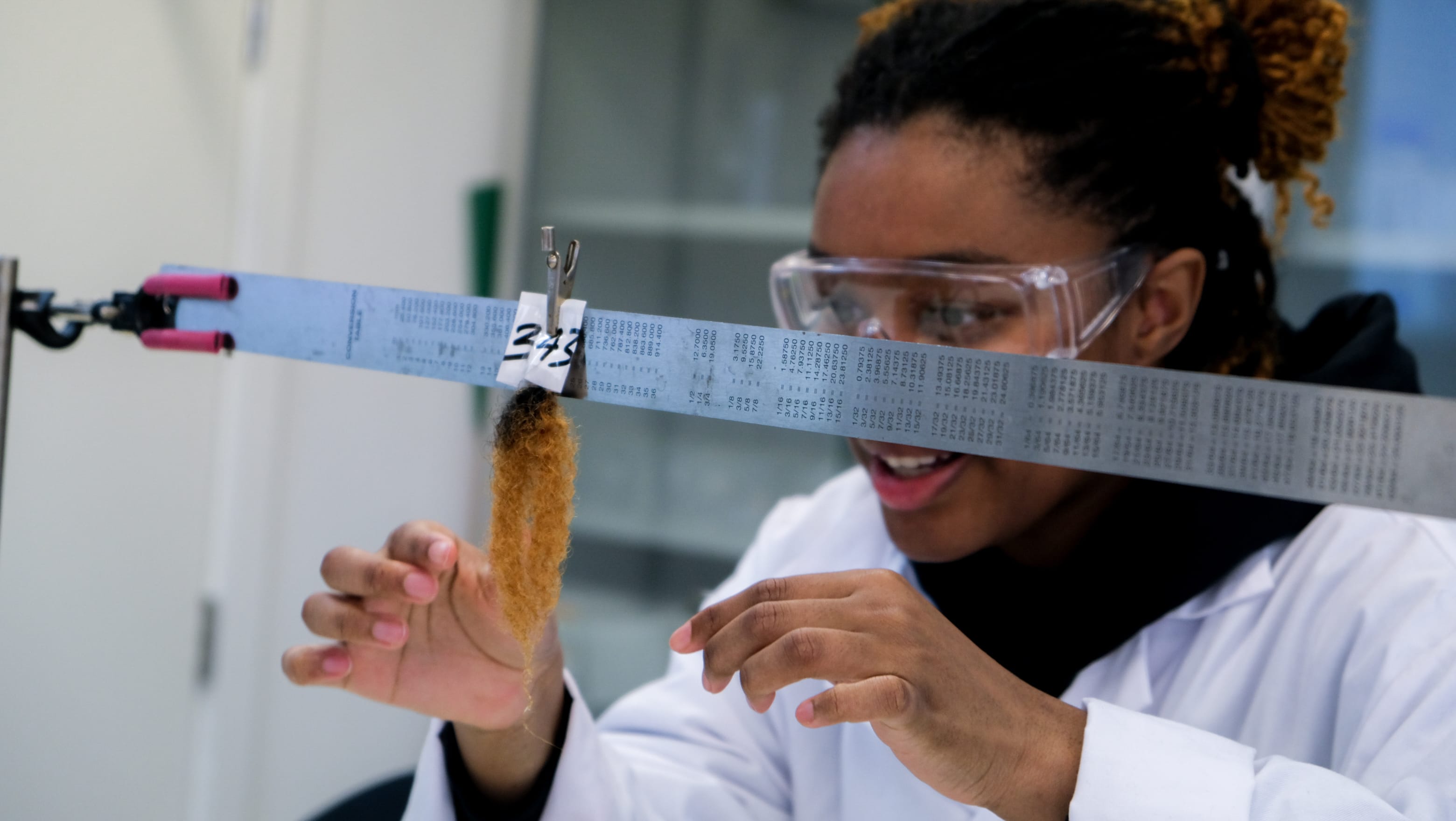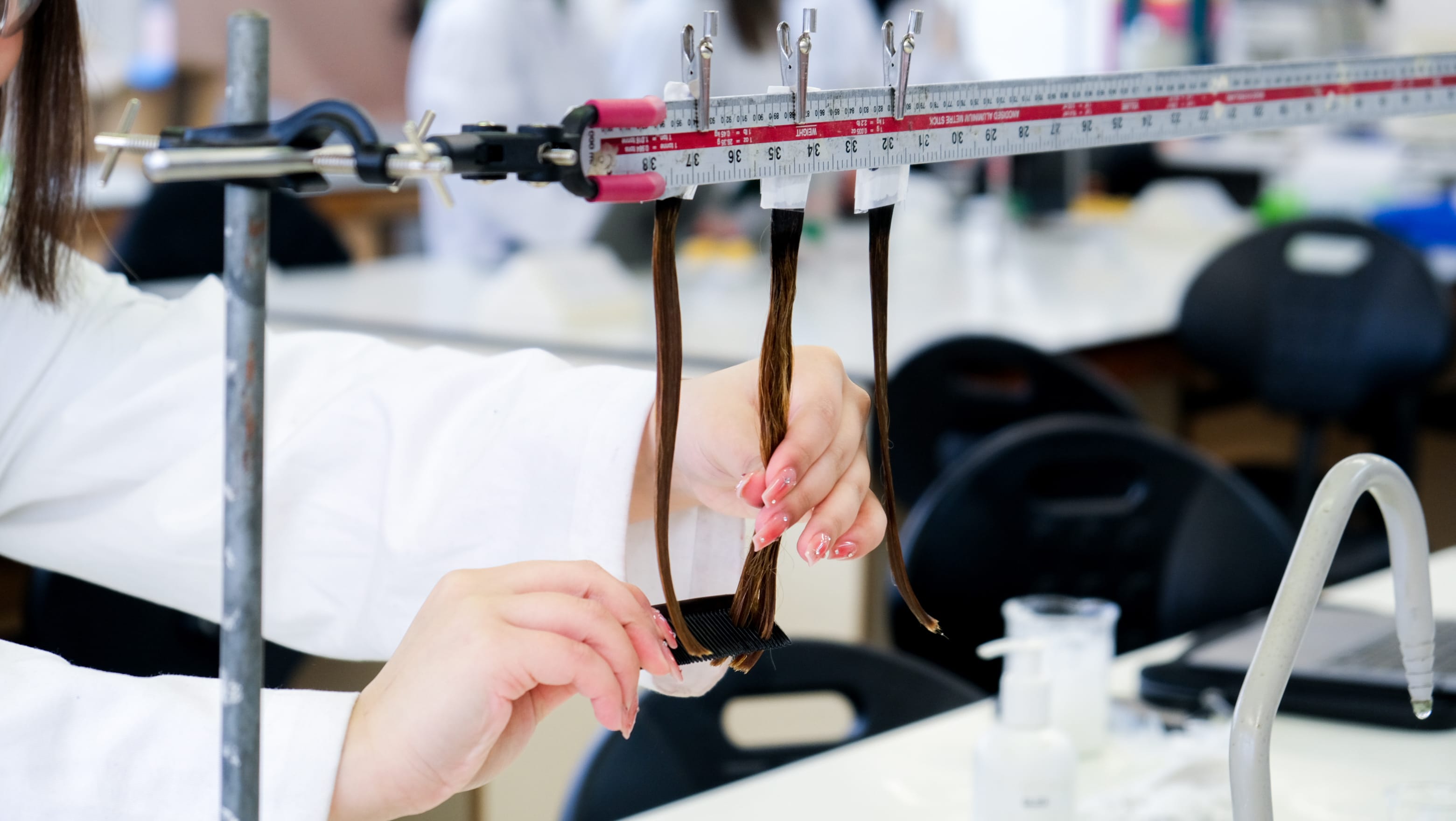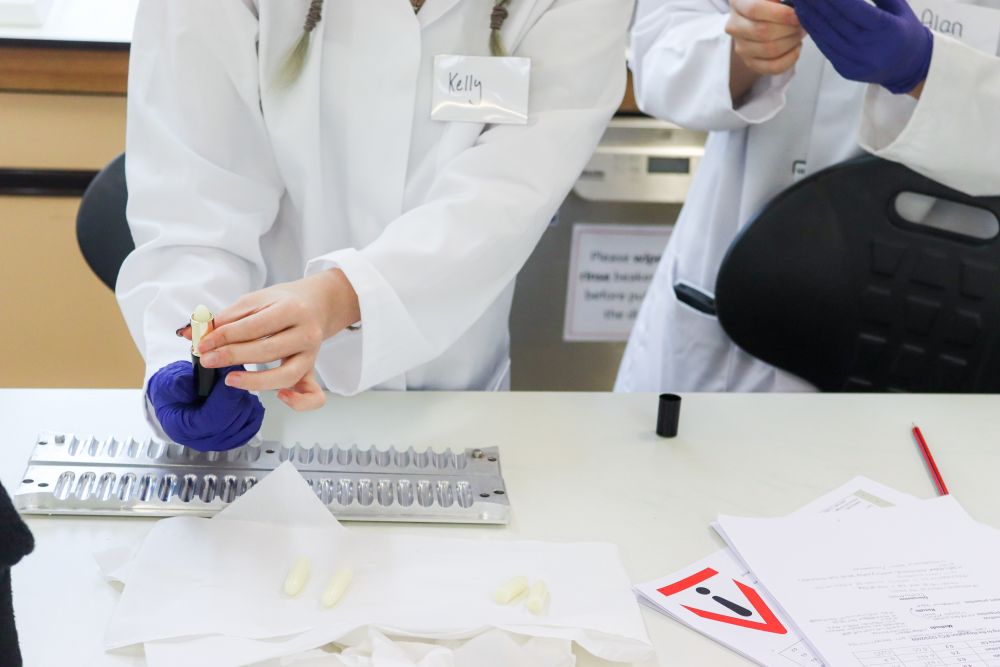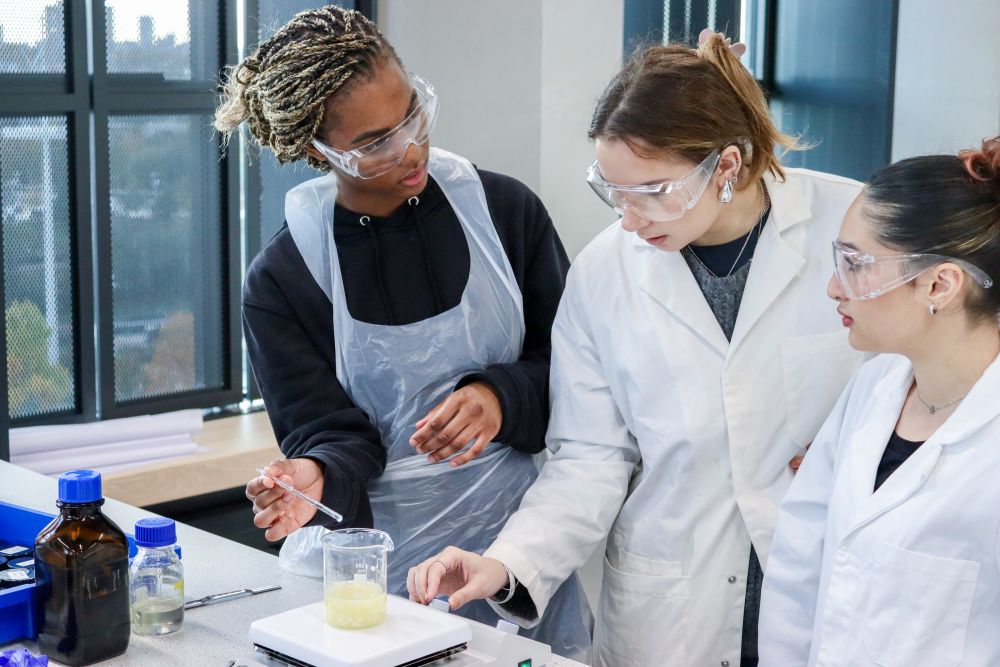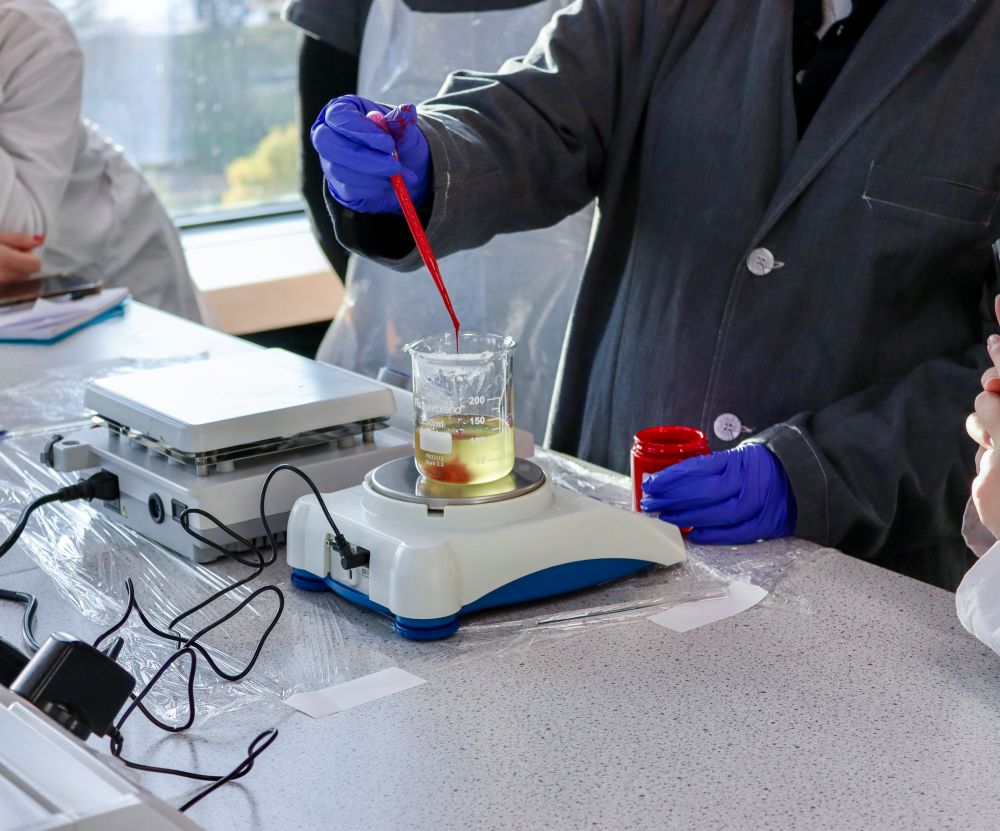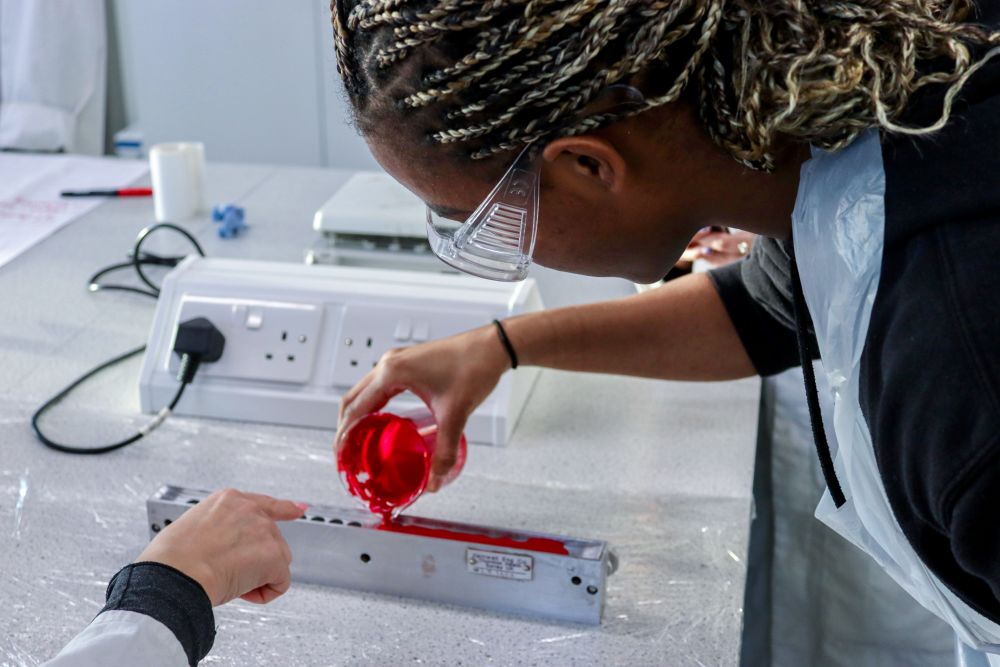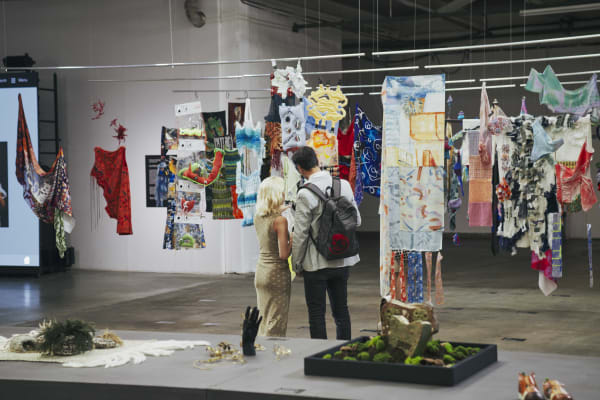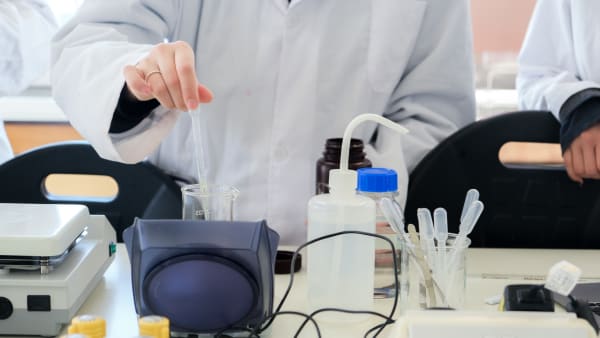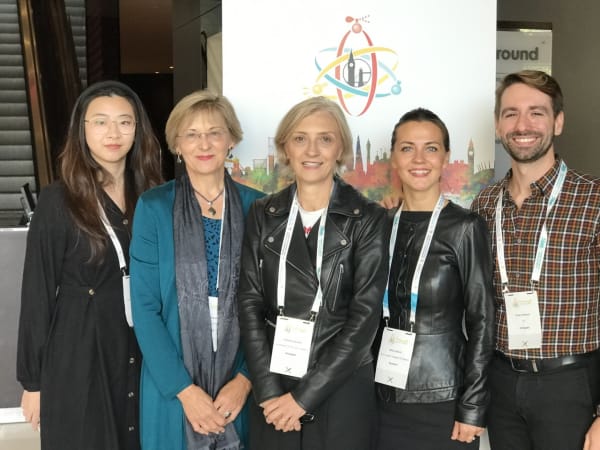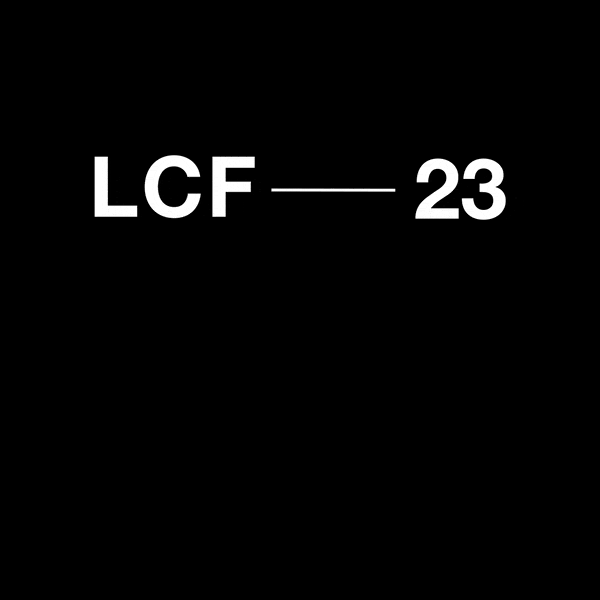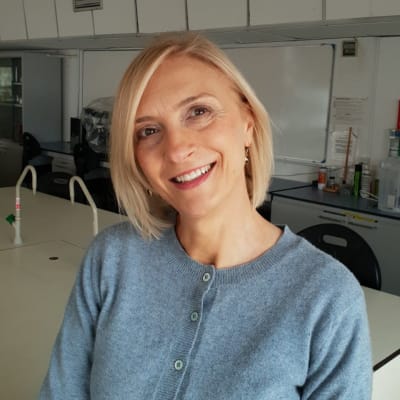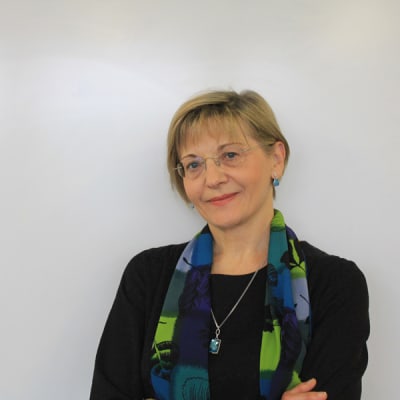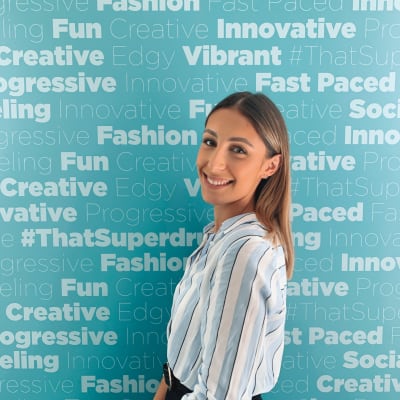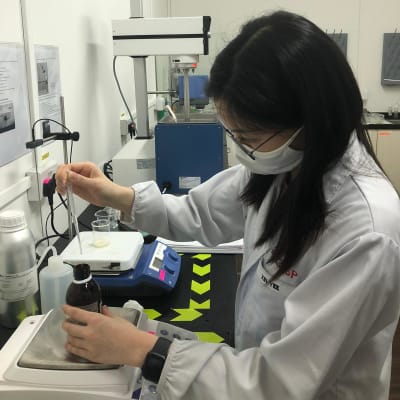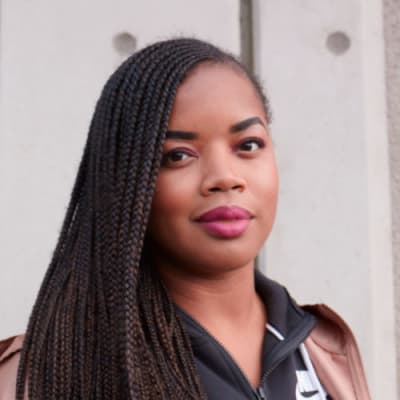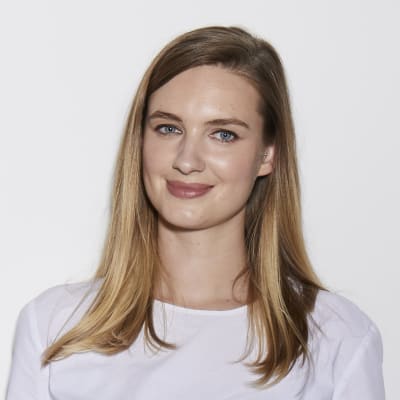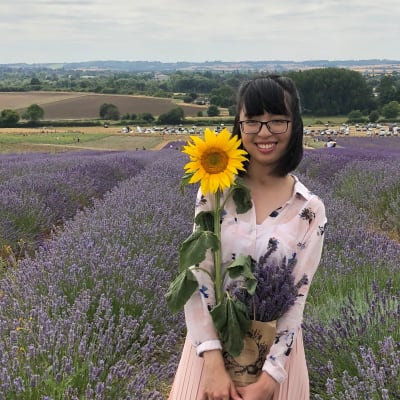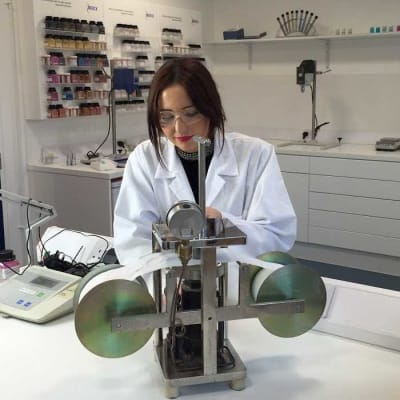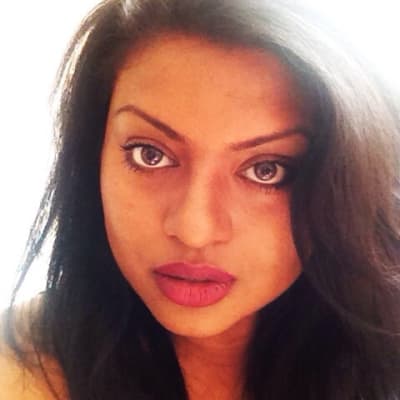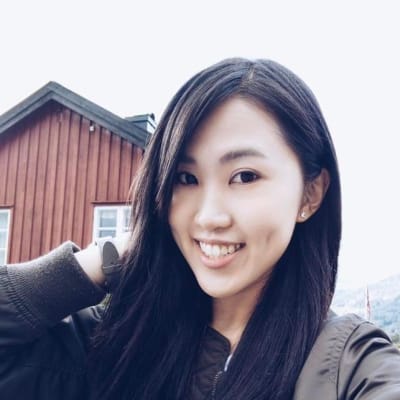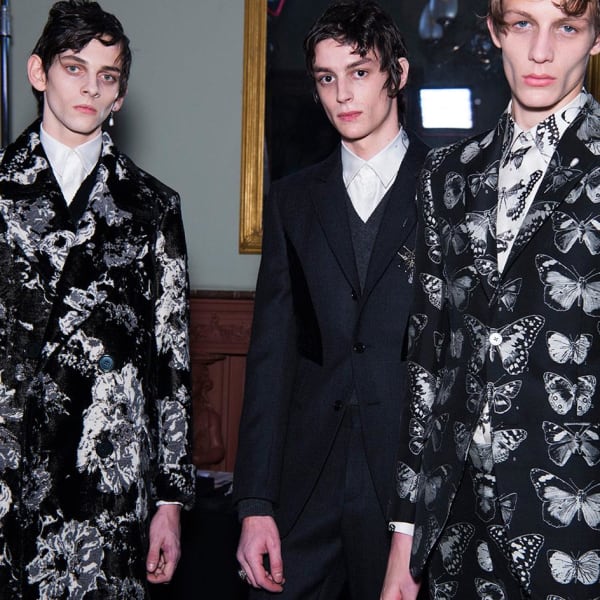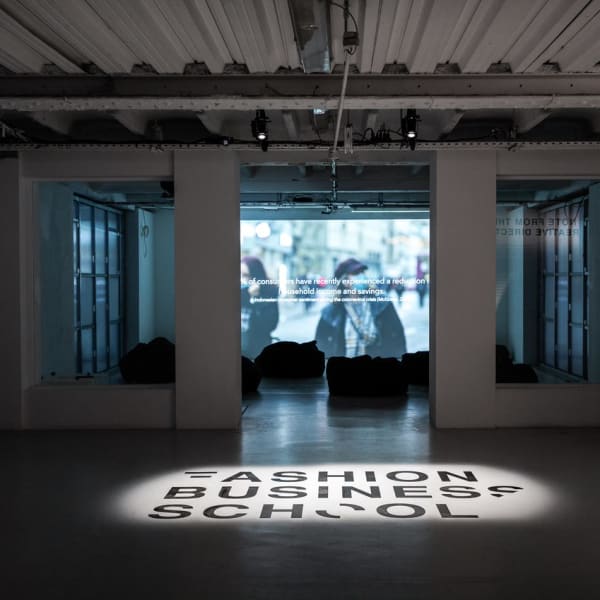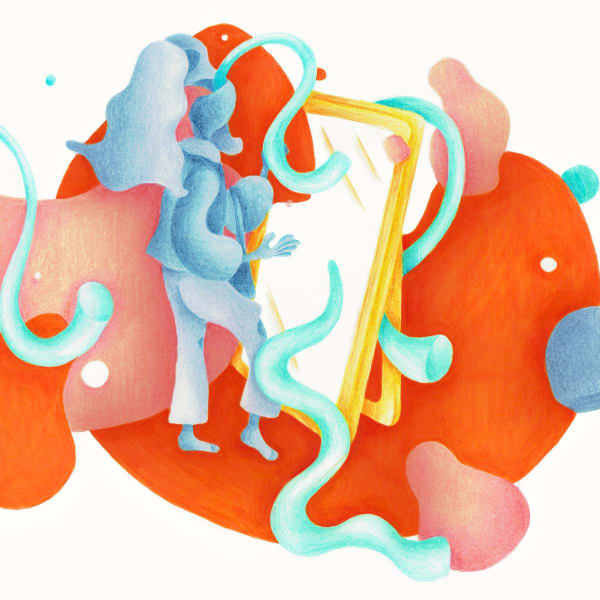Course units
Year 1
Year 1 is planned to help you to make a successful transition from school to university. A dedicated unit is included to assist you in developing the skills you will need to become an independent learner. There will be units in the core sciences that will prepare you for the specific demands of understanding cosmetic science. In Block 2 you will begin formulating a variety of cosmetic products and even get the chance to develop your own.
Units studied:
- Introduction to Cosmetic Science
- Applied Chemistry
- Applied Biology
- Formulation Science
- Product Development and Legislation
Year 2
In Year 2 you will focus on the creation of specific products for care of the skin and hair and in decorative cosmetics. In addition to formulating and testing many different products, you will learn about the role of packaging in protecting products and enhancing sales. The crucial roles of marketing, brand development and supply chain management in the cosmetic industry will also be discussed.
Units studied:
- Haircare
- Packaging and Supply Chain Management
- Brand Development and Marketing
- Skincare and Decorative Cosmetics
Optional Diploma Year
Industry DIPS
This optional diploma can be taken between years 2 and 3. With support from your tutors, you will undertake an industry placement for a minimum of 100 days/20 weeks. As well as developing industry skills, you will gain an additional qualification upon successful completion.
Enterprise DIPS
This optional diploma can be taken between years 2 and 3. With support from your tutors, you will undertake an enterprise placement year where you will explore a business idea from proposal to minimal viable product (MVP). As well as developing enterprise skills, you will gain an additional qualification upon successful completion.
CCI Creative Computing
Between years 2 and 3, you can undertake the year-long Diploma in Creative Computing. This will develop your skills in creative computing alongside your degree. After successfully completing the diploma and your undergraduate degree, you will graduate with an enhanced degree: MSc Cosmetic Science (with Creative Computing).
CCI Apple Diploma
Between years 2 and 3, you can undertake the year-long Diploma in Apple Development. This will give you an opportunity to become an accredited Apple developer alongside your degree. After successfully completing the diploma and your undergraduate degree, you will graduate with an enhanced degree: MSc Cosmetic Science (with Apple Development).
Year 3
In Year 3 you will learn how to evaluate cosmetic products and support claims using instrumental and sensory methods, which will include an element of statistics. You will also learn about the role of microbiology and biotechnology in the cosmetic industry, with a focus on sustainability. This year will culminate in a Product Launch Project, which will allow you to follow the stages required to take a new product from concept to market.
Units studied:
- Microbiology and Biotechnology
- Product Evaluation and Claims Support
- Product Launch Project
Final Year
In the final year of your course you will learn about key instrumentation in cosmetic innovation and have an overview of current trends and topics relevant for cosmetic science and the industry. You will begin your independent Master’s project by creating a Project Proposal which will form the basis of your project report (laboratory-based projects) or dissertation (theoretical, literature-based projects). All topics are expected to address issues of practical or theoretical importance to the cosmetics industry. A research methods unit will support you with proposing, planning and executing your project.
Units studied:
- Advanced Research Methods
- Innovation in Cosmetics
- MSc Project in Cosmetic Science
